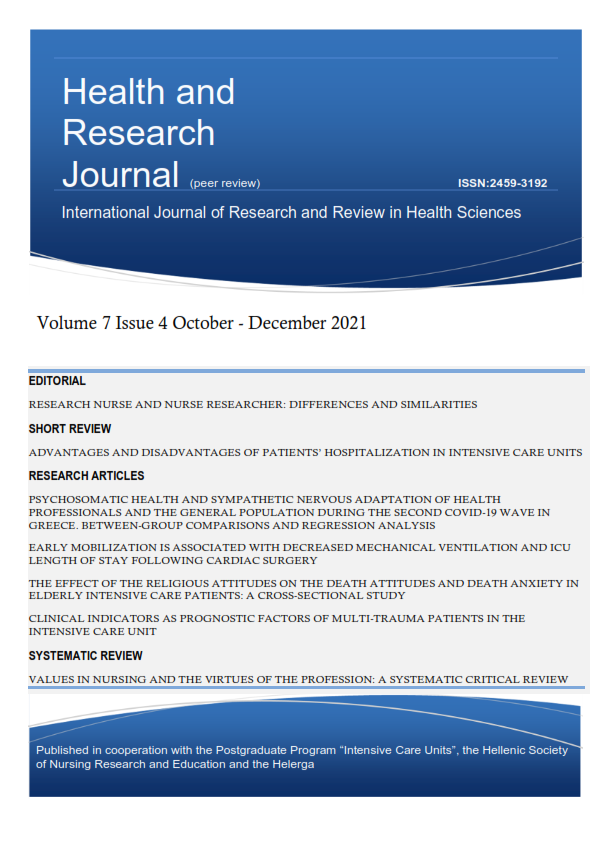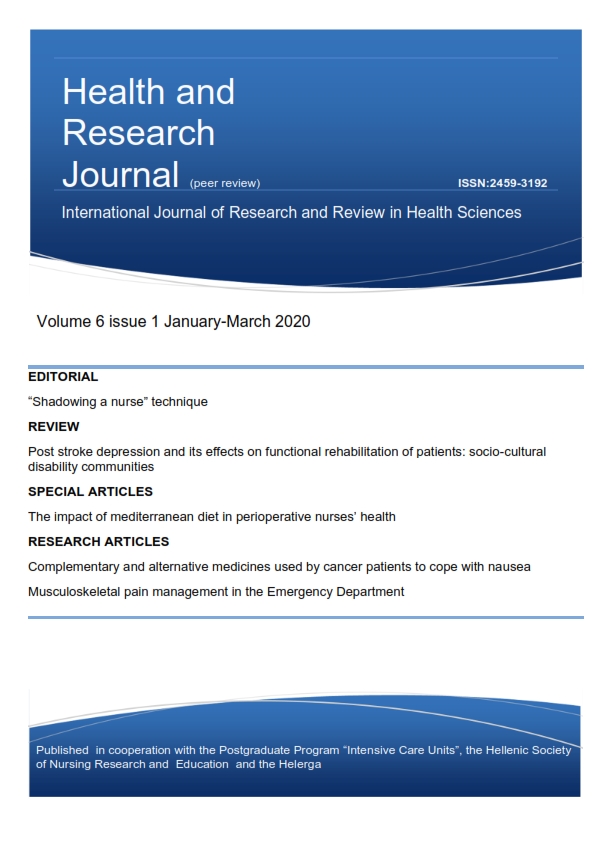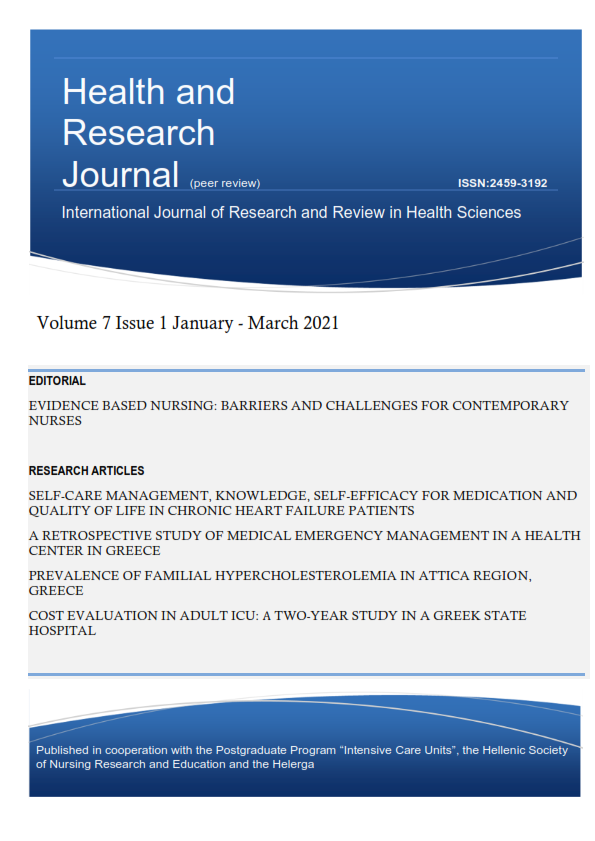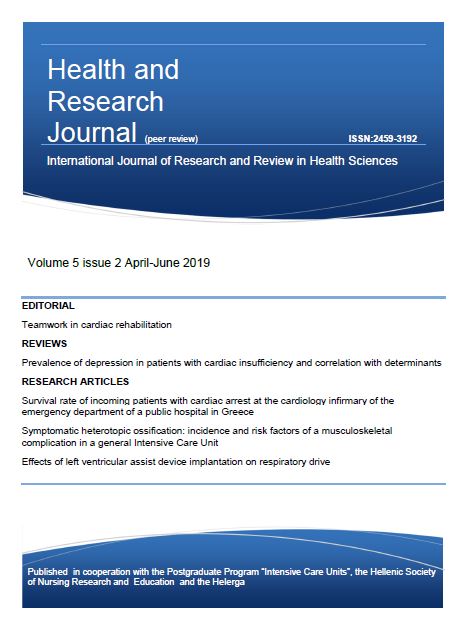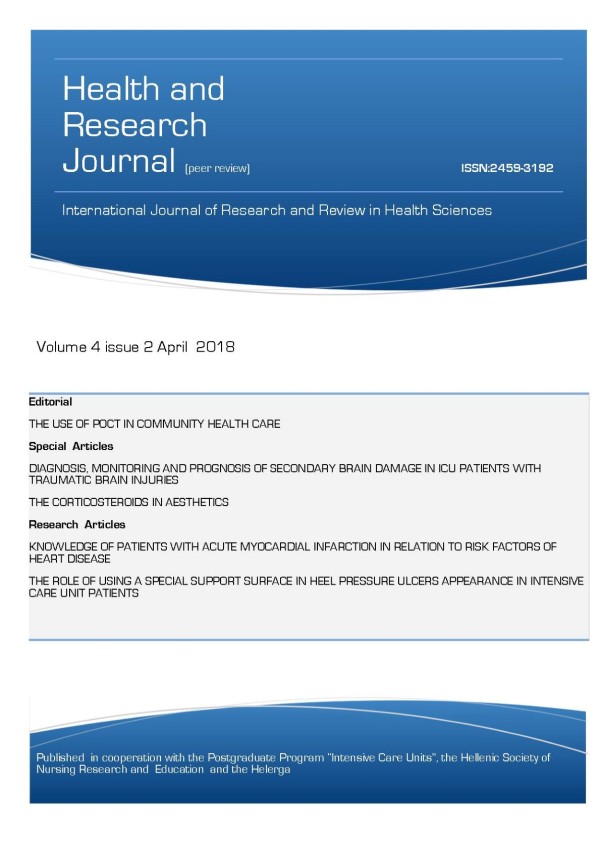Leading causes of bronchial asthma exacerbation

Abstract
Introduction: Bronchial asthma is one of the most common chronic respiratory diseases. The frequency of occurrence differs from country to country, ranging from 1-18%.
Purpose: The purpose of this study was to investigate the causes leading to exacerbation of bronchial asthma.
Material and Methods: Α prospective observational study. The studied sample consisted of 82 patients who attended the emergency department or hospitalized in pulmonary clinics of Athens General Hospital, due to exacerbation of bronchial asthma. For data collection a specific registration form was used. Data analysis was performed with the statistical package Statistical Package for Social Sciences (SPSS).
Results: Twenty two patients (26.8%) were male. The majority of patients (37.8%, n=31) were aged 46-65 years old. There were no statistically significant differences among patients admitted to the hospital for asthma exacerbation, during the last year and factors such as smoking, type of occupation, place of residence and pet ownership. Statistically significant correlation was found between patients who were trained for taking their medication, those who comply with medical orders and history of asthma exacerbation during the last year, (p<0.05).
Conclusions: Patients suffering from bronchial asthma education is an integral part of disease prevention and treatment strategies with a view to comply with medication treatment.
Article Details
- How to Cite
-
Papadakou, G., Dokoutsidou, E., Kadda, O., & Marvaki, A. (2016). Leading causes of bronchial asthma exacerbation. Health & Research Journal, 2(2), 108–120. https://doi.org/10.12681/healthresj.19811
- Section
- Original Articles
Copyright notice:
Authors retain copyright of their work and grant the Health and Research Journal the right of first publication.
License:
Articles are published under the Creative Commons Attribution 4.0 International License (CC BY 4.0). This license permits use, sharing, adaptation, distribution, and reproduction in any medium or format, including for commercial purposes, provided that appropriate credit is given to the author(s) and the original publication in this journal, a link to the license is provided, and any changes are indicated.
Attribution requirement:
Any reuse must include the article citation and DOI (where available), and indicate if changes were made.



